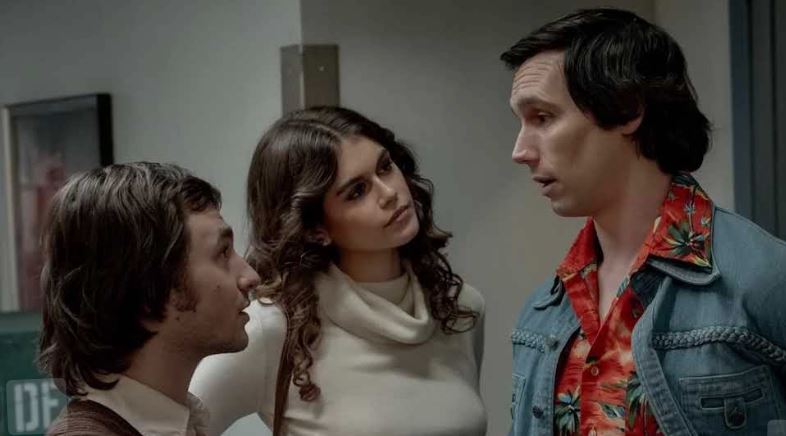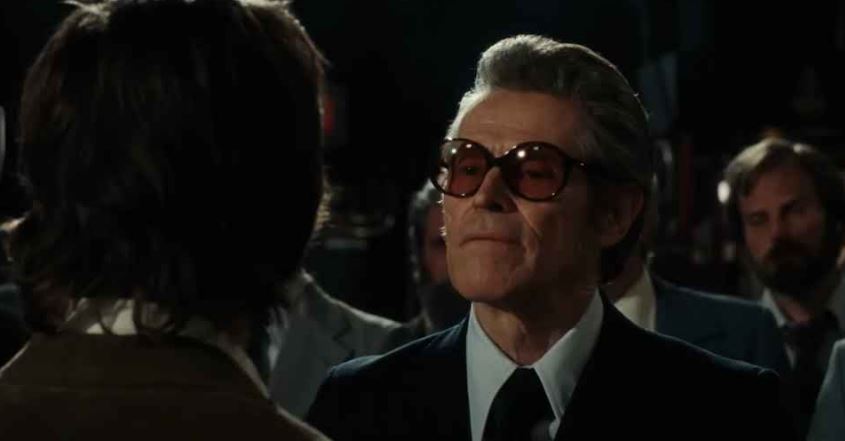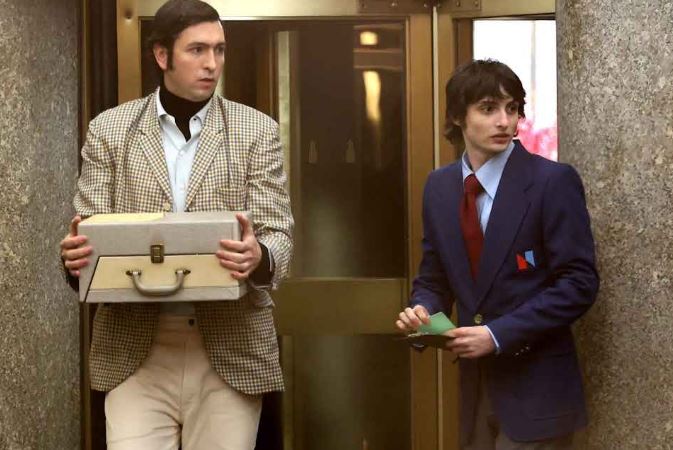You know how on the counter-terrorism TV show 24 — which played out a full day of action, in real time over 24 hour-long episodes — you frequently thought it was impossible for Jack Bauer to be in as many places within a single 60-minute period as the plot needed him to be? How he’d be in a high-speed car chase, jumping out of an airplane, and having a heart-to-heart with his daughter, all in the same episode?
That’s what it feels like to watch Jason Reitman’s Saturday Night. Over the course of the 90 minutes leading up to the 1975 debut episode of Saturday Night Live, then known as just Saturday Night, Gabriel LaBelle’s Lorne Michaels puts out so many fires (in one case, literally), takes so many paths of most resistance, alienates so many network executives and lighting guys and the mercurial stars of his burgeoning institution that turns 50 years old this year, you’d think Jack Bauer was in a retirement village by comparison, lazing away on a couch.
But if not all of these apocryphal episodes really happened – it’s likely that some did but most did not – then Saturday Night boasts something that has the ring of truth instead. It burrows into all the anarchy and chaos that goes into the preparations for any live performance, but especially one that comes together entirely in the week before air. The film begins with a quote from the real Lorne Michaels, then goes on to embody it: “The show doesn’t go on because it’s ready. It goes on because it’s 11:30.”
Michaels has sold the NBC network on the idea of a late-night variety show that would replace the reruns of The Tonight Show with Johnny Carson that they’ve been airing, though he himself admits he can’t put his concept for the show into words. He’s gotten the enthusiastic backing of his boss, Dick Ebersol (Cooper Hoffman), and the decidedly more guarded optimism of network exec David Tebet (Willem Dafoe), who gives the mixed signals that Michaels should blow through any traditional constraints but that Tebet is also ready to pull the plug on the experiment if he determines it’s not ready. And really, there is no reason to look at the absolute circus of freaks buzzing around the studio and think that there’s any chance that it will be.
Michaels has to cut enough sketches so the three-hour dress rehearsal can be halved. He’s got to stroke the egos of comedic savants ranging from Chevy Chase (Cory Michael Smith) to John Belushi (Matt Wood) to Andy Kaufman (Nicholas Braun) to host George Carlin (Matthew Rhys), to say nothing about the scheduled contributions of a young Jim Henson (also Nicholas Braun) and singer Billy Preston (Jon Batiste). Lighting rigs are crashing to the stage floor, costumes are being rejected, sets are being built right up until go time, whole walls of index cards are being wiped from their corkboard, and a variety of stars are in actual fisticuffs with one another, if they can be located at all. Because it wouldn’t be this sort of Sorkin-eseque walk-and-talk without something personal Michaels has to deal with, he’s also trying to figure out if his writer wife Rosie (Rachel Sennott) will be using her surname or his in the credits, something we’re to believe still might not be resolved by showtime.
The dizzying pace of all this action is by turns exhilarating and exhausting. There’s an exceptionalism to the staging here, as the set is a frenzy of perfect choreography featuring a cast of literally dozens of actors you recognise, all hitting their marks just so – a fact Reitman proves on several occasions by letting single shots run for several minutes at a time. Instead of feeling choreographed, though, this action has the improvisational feel that served as the foundation for this show itself, as the various comics were hired specifically for their ability to think on their feet and produce comic gold from the very real possibility of dead air.
And what we lose in realism, we gain in metaphor. The show that has managed to stay relevant for half a century has done so in part for the excitement built into live television, where anything can go wrong, and something always does. Even at the dress rehearsal that nowadays runs for two hours from 8 p.m., 30 minutes of material are going to end up on the cutting room floor, and some of what remains is going to be punched up or even require costume or set modifications. Saturday Night may present an extreme version of that – like, it’s doubtful that John Belushi was actually skating at Rockefeller Centre in a bee costume ten minutes before air – but what it presents is a true encapsulation of its spirit.
Speaking of encapsulating spirits, one of the greatest joys of the film is watching the cast extract the essence from the people they’re interpreting. There are too many to call out specific performances, but in addition to those named earlier, there’s also Dylan O’Brien as Dan Aykroyd, Ella Hunt as Gilda Radner, a surprise appearance from J.K. Simmons as Milton Berle, and Lamorne Morris as Garrett Morris, who you would swear was actually related to the 87-year-old comic who shares his surname. Not only are they close physical matches for the people they’re playing, but they capture the gestures and mannerisms and speech patterns with an ease that belies the technical specificity of their impersonations. (And the film isn’t shy about making people look like assholes. We all know the latterly loathed Chevy Chase was going to get his, but Carlin and Carson, who can be heard on the other end of a phone, get theirs as well.)
It’s just a shame the movie isn’t a little bit funnier. The previously mentioned Aaron Sorkin actually did make a TV show about a Saturday Night Live-type program, the single-season non-starter Studio 60 on the Sunset Strip. That show didn’t land not only because it had the misfortune to start during the same season as the similarly themed 30 Rock, but in part because the fake sketches it showed us were just so unfunny. We know the real material on that first episode of Saturday Night was actually funny, in 1975, else it wouldn’t have made it to week two, let alone week, what would it be, a thousand? Not all of that translates now, as we get only snippets of the sketches in rehearsal, which are more like Easter eggs to students of SNL history.
It isn’t Reitman’s primary project, though, to make us laugh. Saturday Night is more a time capsule replete with artistic license, with a vibe of the insanity that changed the comedy landscape forever. It was a time of casually comedic brilliance, among performers who ranged from showboating wordsmiths to dada performance artists to guys who could just do pratfalls better than anyone else. The amalgamation of elements, with a little music sprinkled on top, gave the world something unique that endures today. It’s worth seeing how it all got started, even if you shouldn’t believe everything you see.
Saturday Night is currently playing in cinemas.



